ARTICLE AD BOX

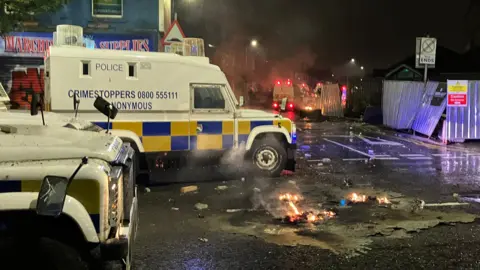 BBC
BBC
Since the weekend, there have been consecutive nights of violence in various parts of Belfast
Executive ministers will meet later ahead of the Northern Ireland Assembly being recalled to condemn recent violence in Belfast.
A successful recall petition will see MLAs return from their summer break to discuss the weekend's events.
Businesses in the city were attacked after an anti-immigration protest erupted into disorder.
It is understood that Chief Constable Jon Boutcher will brief the executive at Thursday's meeting.
The first and deputy first ministers have said their joint priority is to face down racism and intimidation.
They will lead a meeting of the executive on Thursday morning, ahead of the assembly recall beginning at 12:00 BST.

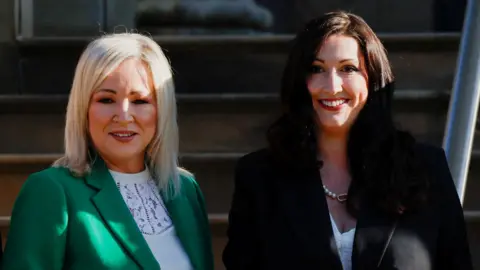 Reuters
Reuters
The first and deputy first ministers said "there must be a zero tolerance approach to racism and wanton destruction"
What has prompted the recall?
There has been violent disorder in towns and cities across the UK since last Tuesday, the day after three young girls were killed in Southport.
False claims on social media followed that someone who had arrived in the UK illegally was to blame.
On Saturday, a cafe was set alight and several businesses were attacked after disorder broke out in Belfast.
A second night of disorder took place in south Belfast on Monday night.
And six people, including three teenagers, were arrested during a third night of disorder on Tuesday. Police are treating the incidents as racially-motivated hate crimes.
The Police Service for Northern Ireland (PSNI) has said there was "no doubt" that a paramilitary element was involved in orchestrating the violence.

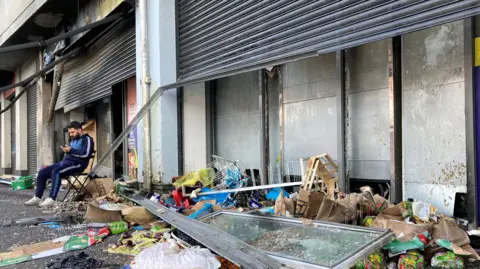 PA Media
PA Media
A number of businesses run by ethnic minorities have been targeted during riotous protests
What will politicians discuss?
Assembly members will debate a motion from the Alliance Party that calls on the assembly to condemn the criminal damage and "targeting of businesses" at the weekend.
It also calls on MLAs to recognise that PSNI resources are stretched and "could have been much more effectively deployed elsewhere".
The move by Alliance to recall the assembly from its summer break was backed by Sinn Féin, the SDLP and independent unionist Claire Sugden.
On Monday, Sinn Féin's Deirdre Hargey said First Minister Michelle O'Neill was cutting short a family holiday to return to the assembly for the debate.
What have ministers said so far about the violence?

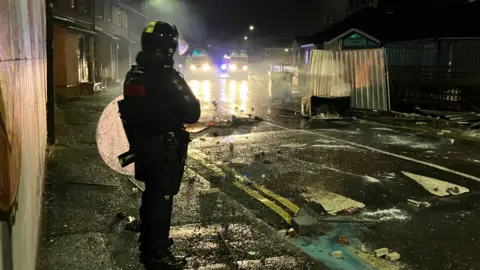
The justice minister defended the PSNI's approach but said certain instances were “sporadic” and "harder for police to keep on top of"
On Monday, the first and deputy first ministers spoke to the chief constable.
After the phone call, Michelle O’Neill and Emma Little-Pengelly said: "There is no justification for racism or for the violence and intimidation that occurred on our streets on Saturday."
They added they offered their full support to the chief constable and asked for those with information to contact police.
Speaking to reporters at the Causeway Hospital in Coleraine on Wednesday, Ms Pengelly said nothing was achieved by violence.
She said she wanted to send a "very very strong message against racism".
She was joined by DUP MP Gregory Campbell as they met with Northern Trust staff to acknowledge the role of overseas health workers in Northern Ireland.
Ms Little-Pengelly said people had “very genuinely held” concerns about issues including “public services and access to housing”.
She added: "Those are issues we need to address through government, through democratic means”.
Some of the victims of the violence have questioned the effectiveness of the policing operation after crowds involved in the city centre protest were able to move into streets in south Belfast where they attacked businesses.
Justice Minister Naomi Long defended the PSNI's response to what she called a "challenging situation", but added that there could be no further scenes of violence taking place in the city.
She said a Stormont recall was important as "political leadership has to be given, and we are the people who should be giving that leadership".
The SDLP, which is the official opposition at Stormont, has said much more must be done by the executive to help those affected and to send a signal that racism will not be tolerated.
Ministers from the four parties who make up the power-sharing executive will discuss what their departments can do to tackle the situation.
What could Stormont do?

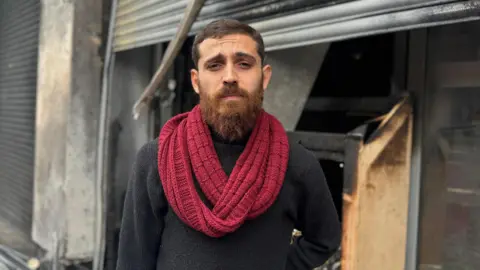
Bashir runs the Sham Supermarket on Sandy Row, he says "nothing" has been done to protect them
Immigration is a matter largely reserved for Westminster, but there have been calls for The Executive Office to do more to help refugees living in Northern Ireland.
The recall motion also calls on the first and deputy first ministers to finalise a Refugee Integration Strategy by the end of this year, and replace an "outdated" Racial Equality Strategy.
Unlike England, Scotland and Wales, Northern Ireland has no refugee integration strategy.
A public consultation on a draft strategy took place in February 2022, but the power-sharing executive collapsed during that time and the institutions remained suspended for two years.

 10 months ago
34
10 months ago
34


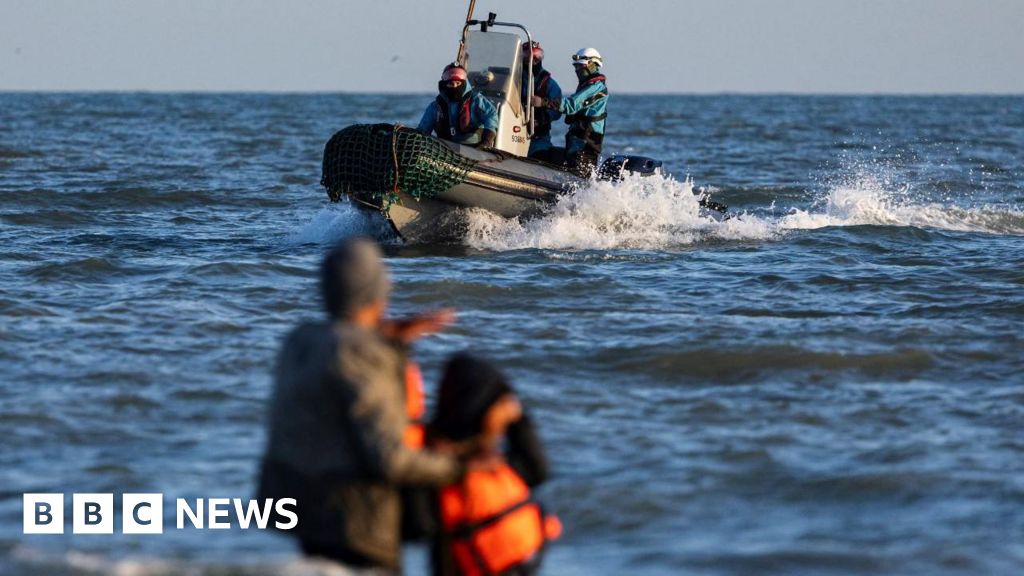





 English (US) ·
English (US) ·